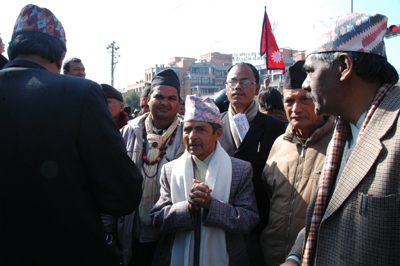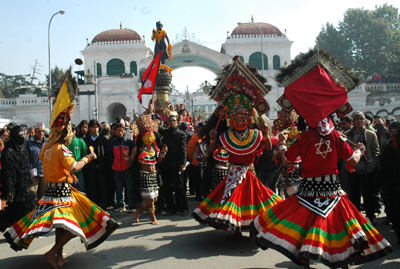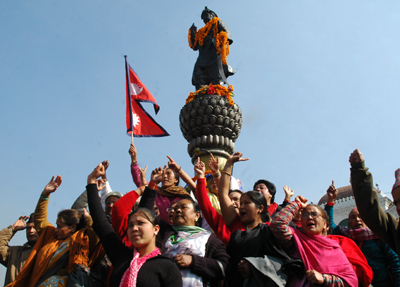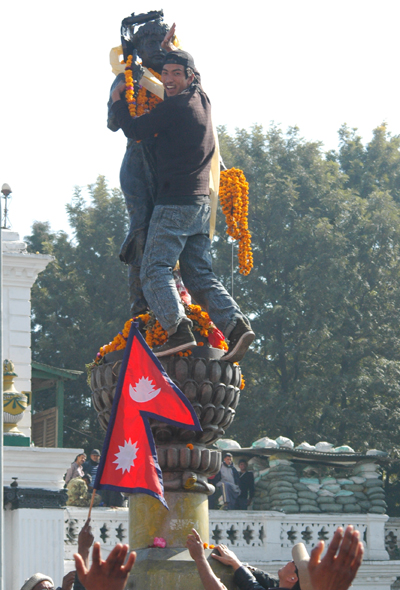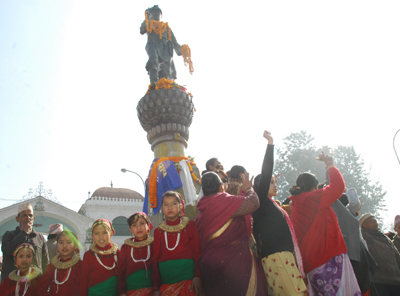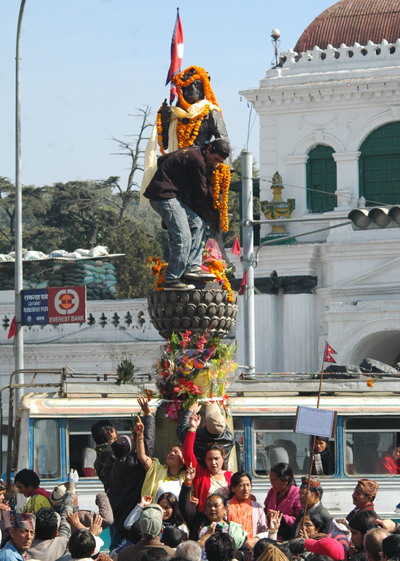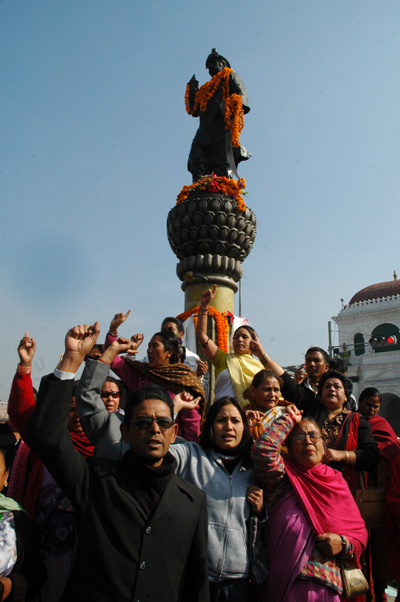There's a name for it now: UNMIN, the United Nations Mission to Nepal. The mandate: monitoring 'arms management' and elections to the constituent assembly.
The proposal for UNMIN was presented to the Security Council on Thursday for budgetary approval and comes as the UN's High Commissioner for Human Rights Lousie Arbour prepares to visit Nepal this weekend. The UN under a new secretary general in 2007 needs a success story after Rwanda and East Timor, and Nepal may just be it.
But if the mission is to help restore lasting peace it will now have to be asked to focus on four issues: fighters, not just weapons, the terms of an acceptable constituent assembly election, potential spoilers such as the situation in the tarai, and pending human rights issues.
Ian Martin and his tiny team kept arms management in the spotlight throughout negotiations in 2006 until the signing of the peace accord and the tripartite agreement. But the new mission's mandate will be restricted by what the seven parties, the Maoists, and Nepal's neighbours want: the almost obsessive focus on cantonments and containers.
Partly it is theatrics. The UN will be here to add credibility to a dramatic homegrown process that is acceptable to the parties and puts the Maoists in the best possible light. But it is also a formula that had to be acceptable to India, which didn't want a precedence for UN peacekeeping so close to home.
Those who asked for UNMIN pose the biggest challenge to it
The drama is necessary. UN involvement in other world hotspots show that a UN-led peace process is sometimes the only way to provide a face-saving way for warring sides to reconcile. The UN's mission in Guatemala is probably closest to the Nepal situation-the UN directed a peace process after the conflict had wound down, so the country could recover from decades of war.
But Guatemala also provides a cautionary tale of the public security fallout in the long-term when a UN-administered demilitarisation and demobilisation is not accompanied by an overhaul of the security establishment. When they are flashed worldwide next week, Maoist weapons being packed into white containers will be an impressive public relations image. But the fighters will remain.
Those in camps have been told by commanders they will be integrated into the Nepal Army. The parties have not said anything on this and no one is talking to the generals anymore. Security reform could therefore have long-term implications to the peace process, but it isn't part of the UN's mandate to address it.
Neither is defining the parameters of an acceptable election. Secretary-general Ban Ki-Moon's proposal includes technical assistance for the electoral process, but like the arms management clause, this could remain a cosmetic role.
Madhesi concerns are still being framed by the government and Maoists as law-and-order issues, rather than calls for inclusion. Even if tarai violence flares threatening a return to conflict, the UN mission's current terms of reference will not allow it to do much. The situation in Nepal may be different than Sudan, but there are complexities here that could catch all sides off guard.
In the current situation, the mandate of the UN can only be enlarged if the seven parties and the Maoists want it. What they appear to have settled for is a set of conditions that will see Nepal through this transition rather than guide long-term change. Civil society, which is now vocal on issues such as impunity and the interim constitution, could be the factor that swings public debate.
Fears that the changeover from Kofi Annan to Ban Ki-Moon will reduce UN engagement here might be unfounded, but the resolution presented to the Security Council Thursday will be subject to the usual tensions between the interests of India, the US, and China and the attention the Council is willing to give Nepal between bigger wars elsewhere.
The UN might be in a 'monitoring', rather than a 'peacekeeping' mode here, but its commitment to ensure due process in elections takes the mission into the realm of 'soft' peacekeeping proposed by the landmark 2000 Brahimi Report on UN peacekeeping. That report also proposed intelligence and the use of 'necessary force' as acceptable strategies. The first might come in handy here, especially in preventing a different conflict.
Related article: Speedbumps
WEB EXCLUSIVE | PICTURE GALLERY
ALL PICS: KIRAN PANDAY
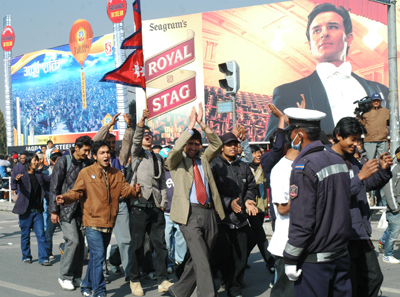
NATIONAL DISUNITY DAY: Supporters of the monarchy marched to the statue of King Prithbi Narayan Shah on Wednesday to prevent it from being defaced by Maoists
